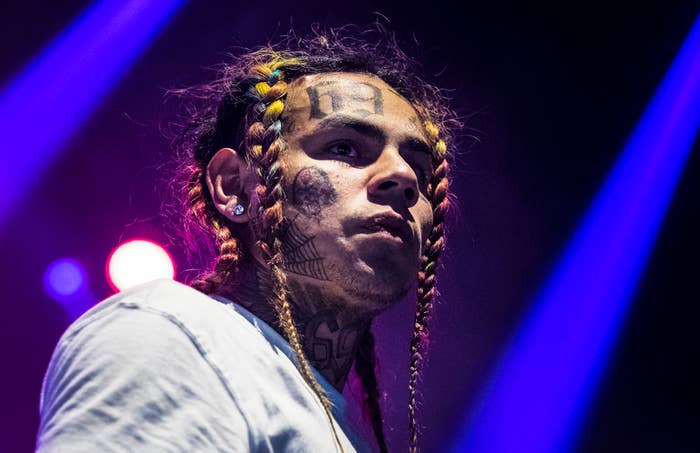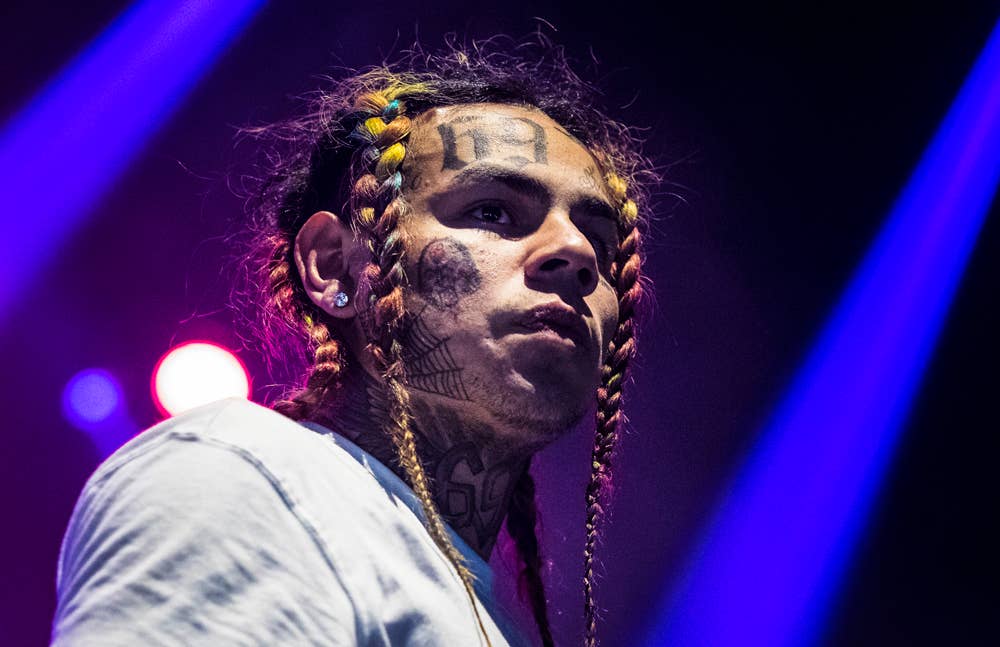
Nearly every day since the mid-November arrest of 6ix9ine and his co-defendants, new information about the case has made its way to the press. Some of the details, like TMZ photos that appear to link the rapper to armed robberies in Brooklyn, directly involve evidence in the case itself.
The daily updates might be slowing down soon.
According to court documents obtained by Complex, federal prosecutors took a major step to keep certain evidence from going public during the discovery process by issuing a protective order this week.
The protective order, dated December 11 and approved by Judge Paul Engelmayer, lays out how making certain types of evidence public would have four negative effects. First, it would “affect the privacy and confidentiality of individuals,” which is quite possibly a reference to an already-acknowledged confidential informant. Second, it would damage the government’s investigation into the Nine Trey Gangsta Bloods. The order’s exact language is that the information, if leaked, “would impede...the Government’s ongoing investigation of uncharged individuals.” Third, there would be publicity before the trial that might prejudice potential jurors. And fourth, the defendants simply aren’t allowed to make some of this stuff public.
The standard for getting an order like this is generally low; the official bar is to show “good cause” that it’s necessary. The rules for keeping evidence secret when it passes between legal parties, as opposed to when a judge has to make a decision on the evidence, is much lower. Use of these orders, especially in high-profile cases, is common. One 2014 article bemoans what it calls the “trend of keeping pretrial litigation information confidential.”
Gregg P. Leslie, executive director of the First Amendment Clinic at Arizona State University’s Sandra Day O’Connor College of Law, tells Complex that the order is a “fairly normal document, if you take the government at its word.” But while he couldn’t say whether this particular order was justified, Leslie explained that orders like this “are overused generally… If the defendant wants to keep something secret, and the government wants to keep it secret, it’s going to be secret almost always.”
The order sets out two different classifications of restricted evidence, to be determined by the government: “confidential” and “sensitive.” The limits on both are nearly identical. Basically, the lawyers and defendants can look at all the evidence, but can’t copy or share it. And when the trial is over, the material has to be turned back over to the government or destroyed. Every lawyer on both sides of the case has agreed to these stipulations. Now, let’s see if it actually stops the release of information.
There’s another wrinkle as well. There are well-documented hostilities between 6ix9ine and the other defendants—one of them has even reportedly threatened the rapper’s life. And, as we’ve reported, 6ix9ine’s own Instagram account will supply a good chunk of the government’s evidence. So the order could be a move to tamp down hostilities between defendants wherever possible by keeping at least some evidence under wraps.
If the order is violated by one of the parties, the consequences can be quite high. They can be fined a hefty amount (here’s a 2012 example where one law firm was fined nearly $30,000 for violating an order by accident), disbarred (if they’re a lawyer), or held in contempt of court—a state that can itself lead to fines or even jail time.
But materials that are secret for now might not stay that way forever. If evidence ends up being used at trial, “it should be public,” Leslie explained. “By the time anything is introduced at trial, it’s either public or there are redactions.”

